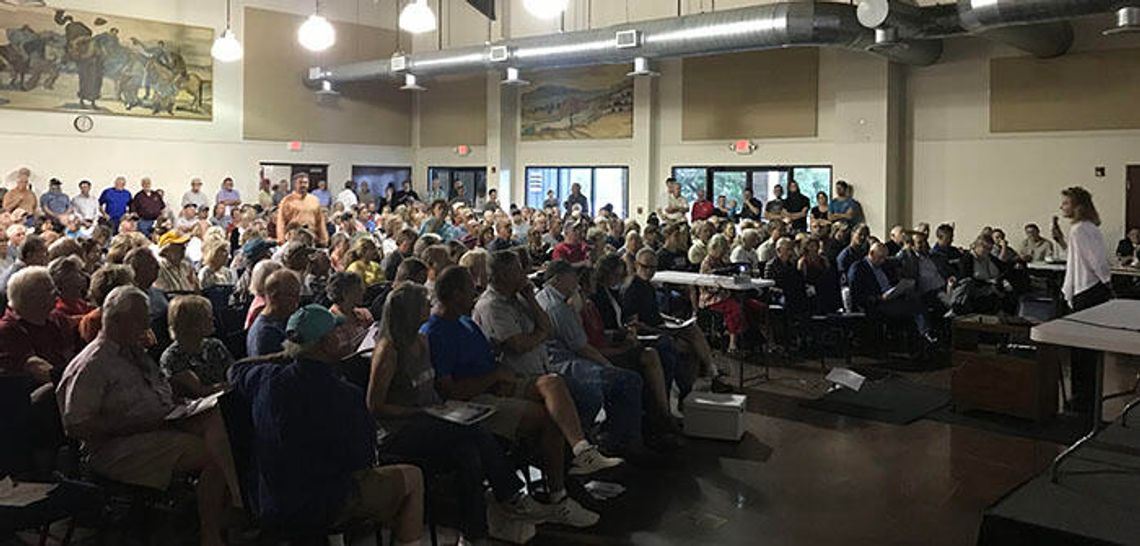Almost 200 Hays County residents crammed into the Wimberley Community Center Monday to hear the Barton Springs Edwards Aquifer Conservation District’s (BSEACD) recommendation on a 2.5 million gallon per day pumping permit by Electro Purification (EP).
BSEACD general manager and staff recommended a plan for Electro Purification’s pumping permit, which originally called for 2.5 million gallons per day of water to be pumped from the Trinity Aquifer.
PLEASE LOG IN FOR PREMIUM CONTENT. Our website requires visitors to log in to view the best local news.
Not yet a subscriber? Subscribe today!











